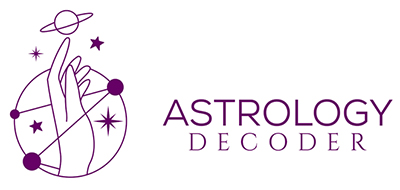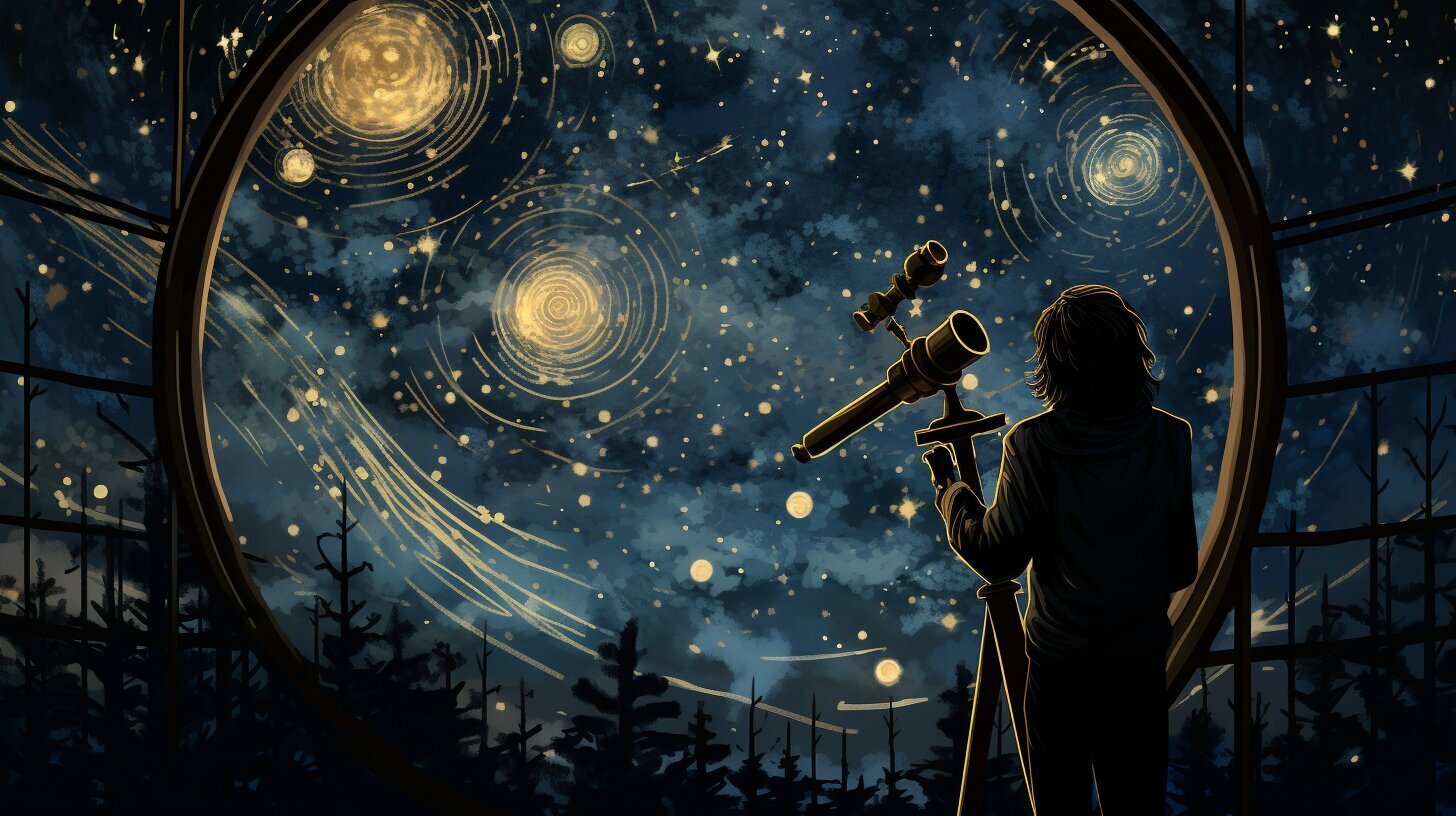Unveiling the Secrets: When and Where Did Astrology Originate?
Astrology originated in the 3rd millennium BC among West Eurasian peoples, with roots in calendrical systems used to predict seasonal shifts and interpret celestial cycles as signs of divine communications. Until the 17th century, astrology was considered a scholarly tradition and influenced various aspects of human history. However, emerging scientific concepts in astronomy undermined its theoretical basis, resulting in its loss of academic standing and recognition as a pseudoscience.
Key Takeaways:
- Astrology has ancient origins dating back to the 3rd millennium BC among West Eurasian peoples.
- Astrology was considered a scholarly tradition until the rise of scientific concepts in astronomy.
- The oldest undisputed evidence of astrology dates back to the first dynasty of Mesopotamia in the 2nd millennium BC.
- Astrology spread to Ancient Greece, Rome, and eventually Central and Western Europe, and has been a part of various cultures throughout history.
- Despite scientific challenges, astrology has experienced a resurgence in popularity in recent years.
Where Did Astrology Originate
Astrology, an ancient practice that seeks to understand celestial movements and their influence on human behavior and events, originated in ancient Mesopotamia around the 2nd millennium BCE.
It was later adopted and developed by various civilizations, including the ancient Greeks, Egyptians, and Romans.
The Ancient Origins of Astrology
The oldest undisputed evidence of astrology as an integrated system of knowledge dates back to the first dynasty of Mesopotamia in the 2nd millennium BC. This West Eurasian practice developed roots in calendrical systems used to predict seasonal shifts and interpret celestial cycles as signs of divine communications. Babylonian astrology is the earliest recorded organized system, arising in the 2nd millennium BC and spreading to Ancient Greece, Rome, and eventually Central and Western Europe.
Astrology developed in various cultures throughout history, with different systems and practices developed to predict terrestrial events from celestial observations. Until the 17th century, astrology was considered a scholarly tradition and influenced various aspects of human history, including politics and literature.
However, emerging scientific concepts in astronomy undermined astrology’s theoretical basis, leading to its loss of academic standing and recognition as a pseudoscience. Despite these challenges, astrology has experienced a resurgence in popularity in recent years, as individuals use it as a tool for self-discovery and guidance.
Babylonian Astrology: The Earliest Recorded System
Babylonian astrology is the earliest recorded organized system of astrology, which arose in the 2nd millennium BC. This ancient astrological system was based on the interpretation of celestial events as signs of divine communications, and it played an important role in the development of astronomy and mathematics.
Astrology was an integral part of Babylonian culture and daily life, with astrologers consulted for various events such as the timing of important activities like planting and harvesting crops. The Babylonians developed complex mathematical methods for predicting celestial events, which were considered omens for both personal and societal affairs. They believed that divine will was reflected in the movements of heavenly bodies and that interpreting these signs was crucial for understanding the world around them.
Babylonian astrology spread to other cultures, including Ancient Greece and Rome, where it was adapted and integrated into their respective systems. The Babylonian astrological system also influenced the development of other cultural and religious traditions, such as Judaism and Christianity.
Despite the scientific challenges to astrology in modern times, the ancient practice continues to fascinate and influence people today. Its legacy lives on, with many still turning to astrology for guidance, self-discovery, and a connection to something greater than themselves.
Astrology Spreads: From Greece to Rome and Beyond
Astrology spread to Ancient Greece, Rome, and eventually, Central and Western Europe, adapting to the cultural and philosophical changes along the way. In Greece, astrology was intertwined with mythology, with gods and goddesses associated with various celestial bodies. Greek philosophers like Plato and Aristotle also contributed to the development of astrology by incorporating it into their philosophical theories.
In Rome, astrology became a tool for political and military leaders, with horoscopes used to predict the success or failure of battles. It was also used to predict important events in the lives of emperors and other important figures.
Astrology continued to evolve in the Middle Ages, with the introduction of Arabic and Persian astrology, which brought new concepts and techniques to the practice. Astrology also played a significant role in the development of alchemy and medicine during this time.
During the Renaissance, astrology regained popularity among scholars and intellectuals, with many important figures like Johannes Kepler and Galileo Galilei practicing and writing about it. However, as scientific knowledge continued to expand, astrology began to lose its credibility and was eventually relegated to the realm of pseudoscience.
Today, astrology has experienced a resurgence in popularity, with many people turning to it as a tool for self-discovery and guidance. While its academic and theoretical standing may be debated, its historical significance and cultural impact cannot be denied.
Astrology’s Influence on Society
Astrology was considered a scholarly tradition in the past and influenced politics, literature, and other fields. It has played an essential role in shaping cultures throughout history. Astrology was used in politics, with rulers consulting astrologers to make decisions. Literature was also deeply influenced by astrological symbolism, with writers using it to create characters and plotlines. Even today, astrology continues to be an integral part of popular culture. It is not uncommon for people to read horoscopes daily or use astrology for personal guidance.
Astrology also holds significant importance in the entertainment industry. Many famous musicians, actors, and writers have claimed that astrology has helped them with their personal and professional lives. Political figures have also used astrology throughout history, with astrology having influenced the decisions of many rulers. The influence of astrology has led to many cultural practices and beliefs that continue to be prevalent in modern society.
However, astrology’s influence on politics and society has not been without controversy. Some people argue that astrology is a pseudoscience and does not have any real impact on people’s lives. Despite the criticism, astrology continues to maintain a prominent place in popular culture. While astrology may not be considered a scholarly tradition today, it has had a significant impact on human history and culture.
Challenges to Astrology’s Academic Standing
However, emerging scientific concepts in astronomy undermined astrology’s theoretical basis, ultimately leading to its loss of academic standing and recognition as a pseudoscience. Astrology was once considered a scholarly tradition and even influenced various aspects of human history, such as politics and literature. However, with the rise of the scientific method, astrology faced challenges to its validity as a scientific practice.
One of the main challenges to astrology’s academic standing was its lack of empirical evidence. While astrology may have been widely practiced and accepted, there was no scientific proof to support its claims. Additionally, astrology and astronomy were once intertwined and considered to be the same discipline. However, as astronomy advanced and became a recognized science, it presented evidence that challenged astrology’s claims. Many of the planets, for example, were found to be uninhabitable and therefore could not exert any influence on human affairs as astrologers had previously believed.
The separation of astronomy and astrology led to a decline in astrology’s academic and theoretical standing. Today, astrology is widely regarded as a pseudoscience and is not recognized as a valid scientific practice.
Astrology’s Resurgence in Modern Times
Despite scientific challenges, astrology has experienced a resurgence in popularity in recent years. People are turning to astrology as a tool for understanding themselves and their relationships, seeking guidance and insight into their lives. Astrology has found a place in modern society as a means of self-discovery and a guide to navigating life’s challenges.
Pop culture has played a role in astrology’s resurgence. Social media platforms have made astrology more accessible, and horoscopes are commonly found in newspapers, magazines, and online publications. Many celebrities publicly embrace astrology, further fueling its popularity.
The modern approach to astrology is different from its historical roots. Instead of relying solely on horoscopes and zodiac signs, modern astrology focuses on the individual’s birth chart, which is a map of the positions of the sun, moon, and planets at the time of their birth. This personalized approach allows for a more nuanced and individualized interpretation of astrological influences.
As people seek to find deeper meaning in their lives, astrology offers a way to explore existential questions and connect with something larger than themselves. It allows individuals to tap into an innate curiosity about their place in the universe and provides an opportunity for introspection and self-exploration.
The resurgence of astrology is not without controversy. Skeptics continue to dismiss astrology as pseudoscience, and the scientific community disputes the validity of astrological claims. However, for many, astrology remains a valuable tool for self-discovery and personal growth.
Astrology and Celestial Observations
Different systems and practices have been developed to predict terrestrial events from celestial observations throughout history. Astrology is one such system that has been integrated into various cultures for centuries. Astrologers track the movements and positions of celestial bodies such as planets and stars, and interpret their influence on human affairs.
In particular, astrology places a great emphasis on the movements of the sun, moon, and planets through the zodiac constellations. Each planet’s position in a zodiac sign is thought to have a significant impact on different areas of life, depending on the planet’s natural characteristics and the sign it is transiting through.
Astrology also takes into account the relationships between celestial bodies, such as aspects, which are angles formed between two planets when viewed from Earth. For example, a conjunction occurs when two planets are in the same zodiac sign or at the same degree, and is thought to represent a significant moment of energy and new beginnings.
While some scientists refute the correlation between celestial observations and terrestrial events, astrology remains deeply ingrained in modern society. Many people use astrology as a tool for self-discovery and personal growth, seeking guidance from their birth chart or horoscope. Others turn to astrology for insight into their interpersonal relationships or career paths.
Despite its scientific challenges, astrology continues to hold a significant place in popular culture, and its resurgence in recent years reflects its enduring influence.
Astrology’s Role in the Past and Present
Astrology has been a part of various cultures throughout history, with its influence continuing in the modern era. Its roots can be traced back to the 3rd millennium BC among West Eurasian peoples, with calendrical systems used to predict seasonal shifts and interpret celestial cycles as signs of divine communications. The oldest undisputed evidence of astrology as an integrated system of knowledge dates back to the first dynasty of Mesopotamia in the 2nd millennium BC. Babylonian astrology is the earliest recorded organized system, arising in the 2nd millennium BC.
Astrology spread to Ancient Greece, Rome, and eventually Central and Western Europe. It influenced politics, literature, and other fields, and was considered a scholarly tradition until the 17th century. Different systems and practices were developed to predict terrestrial events from celestial observations, but with the rise of scientific concepts in astronomy, astrology lost its academic and theoretical standing.
Despite scientific challenges, astrology has experienced a resurgence in popularity in recent years. Modern practitioners use astrology as a tool for self-discovery and guidance, in addition to predicting future events. Astrology remains a topic of fascination and debate in contemporary society, with its historical significance and role in modern culture subject to ongoing scrutiny.
The Decline of Astrology’s Academic Standing
With the rise of the scientific method, astrology lost its academic and theoretical standing. As early as the 17th century, scientific concepts in astronomy challenged the theoretical basis of astrology, resulting in its loss of academic recognition. The scientific method insists on empirical evidence and testable hypotheses, which astrology, with its lack of empirical evidence and its reliance on intuition, could not satisfy.
Despite losing its academic status, astrology has continued to influence popular culture and has resurged in popularity in recent years. Many see astrology as a tool for self-discovery and guidance, exploring their personalities and relationships through the interpretation of celestial events. While astrology’s theoretical underpinnings may have been invalidated by the scientific method, its importance in human history cannot be denied.
The decline of astrology’s academic standing has not diminished its impact on culture, and it continues to be a source of fascination for many. The study of astrology may no longer be considered a science, but its ability to spark introspection and self-discovery is as strong as ever. As we continue to explore the mysteries of the universe, astrology remains an important part of our human experience.
Astrology as a Personal Guide
Many individuals turn to astrology as a means of self-discovery and personal guidance. The introspective and individualized nature of astrology allows for a deeper understanding of oneself and one’s place in the world. By examining the positions and movements of celestial bodies at the time of one’s birth, astrologers can determine one’s personality traits, strengths, and weaknesses.
Astrology can also provide insight into relationships, career paths, and life decisions. By analyzing the compatibility of two individuals’ astrological charts, astrologers can predict the strengths and challenges in their relationship, helping them navigate potential conflicts and maintain a healthy partnership. Astrology can also guide individuals in choosing a fulfilling career path and making important life decisions by identifying their natural strengths and aligning them with their astrological chart.
However, it is important to note that astrology should not be used as a sole determinant for life decisions. It should be regarded as a tool for self-discovery and personal growth rather than a definitive answer to life’s questions. Ultimately, individuals have the power to shape their own lives and should use astrology as a means of gaining insight and perspective, rather than relying solely on astrological predictions.
Astrology has experienced a resurgence in popularity in recent years, particularly among millennials and Gen Z. This renewed interest in the practice may be attributed to its accessibility, with numerous online resources and apps offering personalized astrological readings. In a rapidly changing and uncertain world, individuals may turn to astrology as a means of finding meaning and purpose in their lives.
Overall, astrology can serve as a valuable tool for self-exploration and personal guidance. By examining one’s astrological chart and exploring the various aspects of astrology, individuals can gain insight into their personality, relationships, and life path. However, it is important to approach astrology with a critical and discerning mind, using it as a means of gaining perspective rather than relying solely on astrological predictions.
Conclusion
In conclusion, astrology originated in the 3rd millennium BC and has since had a profound impact on various cultures and fields. The earliest evidence of astrology as an integrated system comes from the first dynasty of Mesopotamia in the 2nd millennium BC, with Babylonian astrology being the earliest recorded organized system. Astrology spread to Ancient Greece, Rome, and eventually, Central and Western Europe, where different systems and practices were developed to predict terrestrial events from celestial observations.
For centuries, astrology was considered a scholarly tradition and influenced areas such as politics, literature, and other fields. However, with the rise of the scientific method, astrology lost its academic and theoretical standing and was labeled a pseudoscience. The scientific challenges that were faced resulted in astrology losing its recognition as an academic field, but this did not prevent astrology from experiencing a resurgence in popularity in recent years.
Astrology has always been perceived as a tool for introspection and self-discovery, which remains its greatest appeal. Despite its scientific challenges, many continue to utilize astrology as a personal guide. The connection between celestial observations and astrology in predicting terrestrial events continues to inspire many. In conclusion, astrology remains an important part of human history, and its impact on contemporary society cannot be overlooked.
Related reading: Where Did Astrology Come From
FAQ
When did astrology originate?
Where did astrology originate?
Was astrology considered a scholarly tradition?
What is the oldest evidence of astrology as an integrated system of knowledge?
What is Babylonian astrology?
How did astrology spread?
How did astrology influence society?
Why did astrology lose its academic standing?
Has astrology gained popularity in recent years?
How does astrology predict terrestrial events?
What is astrology’s role in modern society?
What led to astrology losing its academic standing?
How is astrology used as a personal guide?
Sources
- https://en.wikipedia.org/wiki/History_of_astrology
- https://iep.utm.edu/hellenistic-astrology/
- https://en.wikipedia.org/wiki/Astrology

Dorthe D.:
🌍 Origin: Denmark ✈️ Globetrotter since the late ’90s 📚 Passionate about Astrology, Spirituality, Words of wisdom, Dream interpretation, and the Law of Attraction.
Welcome to my journey of exploration and inspiration! 🌟

